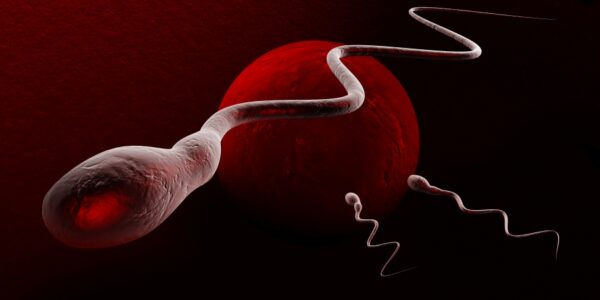Male Infertility
Male infertility refers to the inability of a male to make a fertile female pregnant. It is usually due to semen deficiencies. Infertility is a widespread issue. For about 20% of infertile couples, the problem is only in the male partner. For about 30% of couples, the problem is in both partners. Therefore, the man contributes to infertility in around half of all cases.
About one in 20 men have low numbers of sperm, causing infertility. However, only about one in every 100 men has no sperm at all.

What is male infertility?
Having a baby is generally a simple and natural experience. However, for some couples, it can be difficult to conceive a child.
As a male, your fertility generally depends on the quantity and quality of your sperm. If the number of sperm you ejaculate is low, or if the sperm is of poor quality, it will be difficult, and in some cases impossible, to get pregnant.
If you’ve been trying to get pregnant without success for a period of 12 months, and you’ve been having sex at least twice a week, it’s worth visiting the doctor. If you’re aware of factors that could have an impact on your chances of conceiving a baby, it’s a good idea to seek help earlier on. Both you and partner should be tested for reproductive problems at the same time.
What are the symptoms of male infertility?
In most cases, there are no obvious signs of infertility. You’ll usually have no difficulty with sexual activity, erections and ejaculation, and your semen will look normal to the naked eye. You’ll need medical tests to help find out the cause of infertility.
What causes male infertility?
- Sexual problems that affect whether semen is able to enter the vagina (one in 100 infertile couples)
- Low levels of hormones made in the pituitary gland (a hormone controller in the brain) that affect the testicles (one in 100 infertile men)
- Sperm antibodies (proteins that fight against sperm, which are found in one in 16 infertile men). In most men, sperm antibodies will not affect the chance of a pregnancy, but in some cases it can reduce your fertility.
- Sometimes, male infertility is simply genetic.
Diagnosis of Male infertility
- History
- Physical examination
- Semen analysis
- Blood analysis to rule out hormonal imbalances or genetic issues.
- Patient’s partner examination.
Male Infertility Treatment
- The treatment modalities depend upon the underlying disease and extent of impairment.
- Pre-testicular issues can be rectified by medicines.
- Testicular based infertility is usually medication resistant.
- Post-testicular infertility can be overcome by surgery.
- In infertility condition, the female fertility should also be checked.
FAQs
WHAT IS UROLOGY?
Urology is a surgical speciality that addresses male and female diseases of the urinary tract, as well as male reproductive system disorders. Urology is a part of health care that deals with diseases of the male and female urinary tract (kidneys, ureters, bladder and urethra). It also deals with the male organs that are able to make babies (penis, testes, scrotum, prostate, etc.). Since health problems in these body parts can happen to everyone, urologic health is important.
WHAT CAN I DO TO MAINTAIN GOOD UROLOGIC HEALTH ?
The best way to avoid urological problems is to maintain good overall health habits, including exercising regularly, maintaining a healthy weight and avoiding tobacco, excessive alcohol, and caffeine.You should also avoid foods or substances that remove water from the body, known as diuretics.
THERE’S BLOOD IN MY URINE. WHAT MAY BE THE CAUSE?
The presence of blood in the urine could be the result of a minor cause or a serious underlying medical condition. To determine the source, a urologist will perform a thorough evaluation. The blood could be the result of an infection, kidney or bladder stones, cancer of the urinary system, or injury.
IT’S PAINFUL TO URINATE. WHAT COULD BE CAUSING THE PROBLEM?
There are many conditions that could result in painful urination. An infection of the urinary tract or prostate is a common cause, along with obstructions in the urethra, kidney, bladder, or prostate.